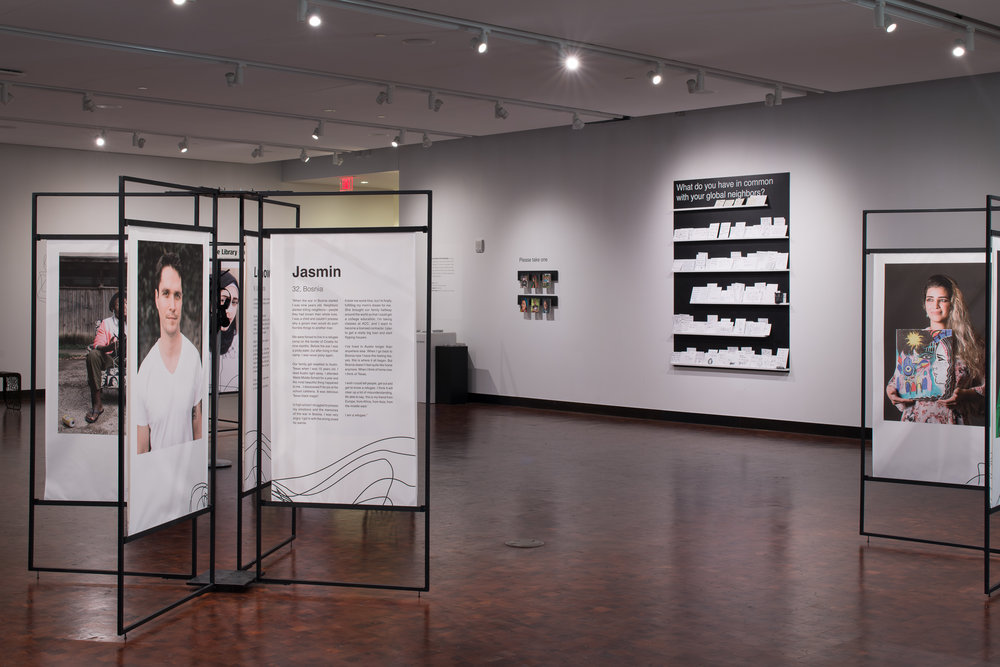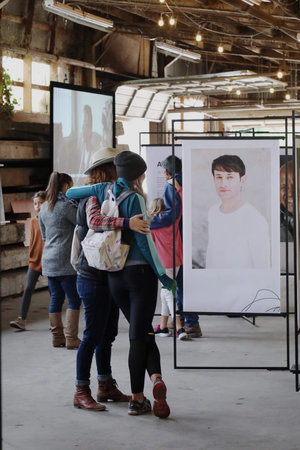For three years I collaborated with three other artists in Austin to create the exhibit, Refugee is Not My Name. Now, on the other side of the process, I can tell you some things I learned from the experience. I’m calling them 4 Things I Know for Sure. I’ll write these in two parts. Here is part one.
1.Collaboration can be tough on the ego. Most writing I’ve ever done is 90% solitary work. There’s the 10% of outside editing at the end, however that’s just polishing. But working with two or three people on a project, where everyone gives feedback and everyone brings their strengths and critique to the effort is humbling in all the ways you can imagine. Your cool idea isn’t as good as you thought it was. Ouch. The group sees your contribution and says, not your best work, you can make it better. Ouch. Or you thought you were a nice easy breezy personality. Turns out you get your feelings hurt over little slights and you hold grudges more than you thought you did. Double Ouch. Collaboration means you have to gently remind your inner child, “You still belong here. Check the facts before you judge based on feelings.” That magazine, ALL collaboration. That outstanding concert? Play? Film? All collaborative efforts. People told me after seeing Refugee is Not My Name, wow it all looked so professional. That’s because 4 people putting forth their best effort to accomplish a goal is basically the definition of professionalism.
2. Personal narrative cuts through divisive politics.You can’t combat a personal testimony. You can’t argue away someone’s experience with statistics. Nothing cuts through political noise better and truer than personal narrative. That’s because the template for story is written in our DNA. Being human means we’re hard wired to understand through story. The arch of narrative is coded in us.
This was my experience… This is how I felt in that situation…
Did we ever hear negative feedback on our exhibit? Not once. Not one time did someone say, I disagree. That’s because our exhibit cut through the noise and focused only on the personal voices and testimonies of refugees who’ve resettled in Austin. By nature it was art you can’t argue with. I did my utmost to maintain the integrity of each refugee’s experience when writing their stories. I constantly had to check if I was slipping into the driver’s seat to manipulate the route of the vignette toward my own interest. The ego wants to. But the aim for me was two fold:1. Find the patterns and their story. Sometimes an outsider can hear our stories and see the patterns. And 2: make my voice simply a frame around their words. For empathy to grow in us, in our children or in our government, the thing we need most is personal testimony.



